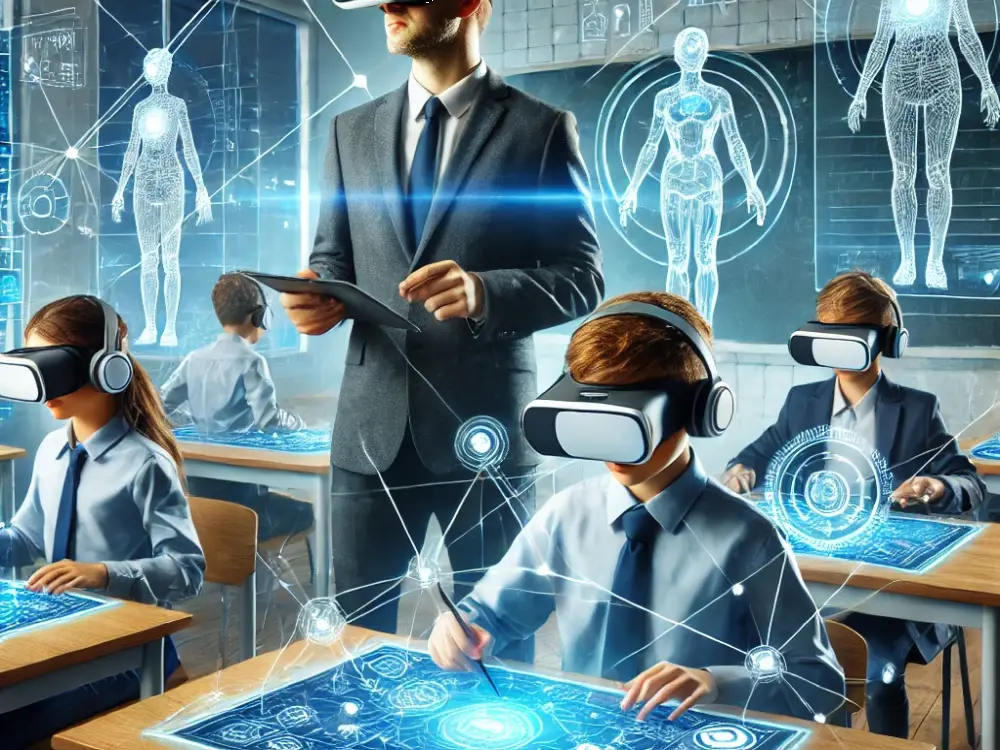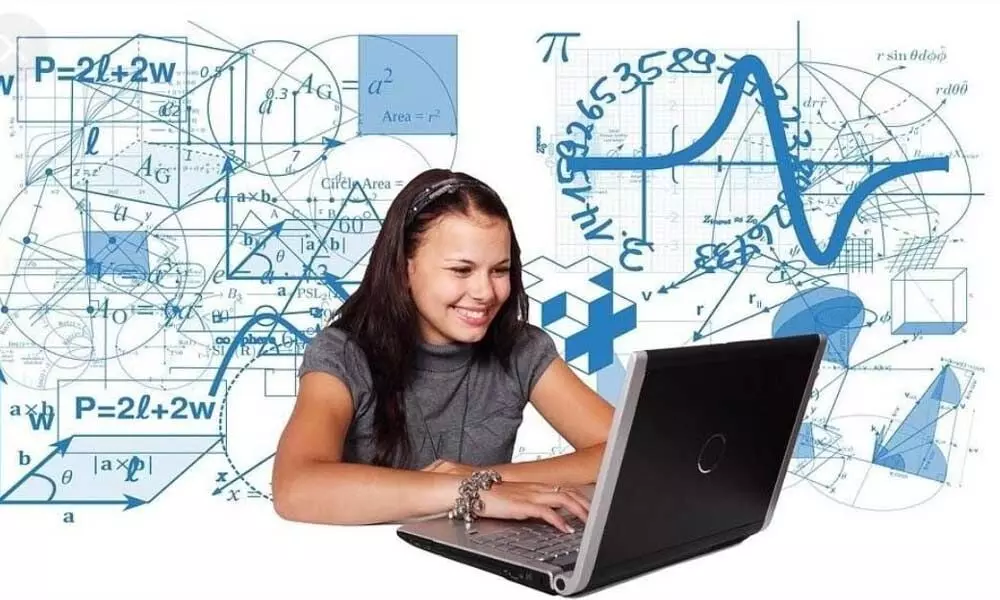Increase Your Knowledge with Education Resources Tailored to Your Requirements
Increase Your Knowledge with Education Resources Tailored to Your Requirements
Blog Article
The Role of Modern Technology Education in Shaping Tomorrow's Workforce: Insights for Educators
As the landscape of employment proceeds to advance under the influence of technical improvements, the role of modern technology education and learning ends up being progressively essential in preparing students for future professions. Educators are charged with gearing up students not only with technological effectiveness yet additionally with vital soft abilities such as vital reasoning and collaboration. By examining innovative curricular approaches and cultivating partnerships with market leaders, we can better recognize exactly how to properly cultivate a workforce that satisfies the needs of a digital economy. What methods can instructors employ to connect the void between education and sector assumptions?

Value of Innovation Education And Learning
In an increasingly electronic world, the value of technology education and learning can not be overemphasized. As industries develop and incorporate advanced innovations, a versatile education in technology becomes vital for both individual and professional development. Modern technology education furnishes individuals with the abilities required to navigate the complexities of modern-day offices, cultivating versatility in an environment defined by fast adjustment.
Furthermore, innovation education and learning advertises critical reasoning and analytic skills. Grants. By engaging with different technological tools and platforms, learners improve their capability to evaluate details, draw links, and create cutting-edge solutions to real-world issues. This academic focus not only prepares trainees for particular professions however additionally cultivates a way of thinking that is crucial for lifelong knowing
Additionally, technology education plays a critical role in bridging the electronic divide. By giving fair access to technological sources and training, universities equip all students, regardless of socioeconomic status, to get involved in the digital economic climate. To conclude, as we move even more right into the 21st century, focusing on innovation education is imperative for preparing a competent labor force capable of thriving in a significantly interconnected and technically driven global landscape.
Trick Abilities for Future Workforce

Furthermore, efficiency in digital proficiency is crucial; workers should navigate a selection of software program tools and systems effectively. Collaboration skills are also extremely important, as many modern work environments highlight teamwork across varied, typically remote, environments. Creative thinking and advancement will be critical in driving the advancement of new options and products in a competitive market.
Recognizing data analytics and cybersecurity concepts is progressively important, mirroring the growing value of data-driven decision-making and safeguarding sensitive information. Finally, a fundamental expertise of artificial intelligence and artificial intelligence will equip future specialists to take advantage of these modern technologies efficiently.
Educators should consequently prioritize the combination of these abilities into their technology educational program, making certain trainees are well-equipped to meet the demands of a dynamic task market. By cultivating these competencies, we prepare learners not just for their initial jobs, however, for lifelong professions in an ever-evolving technological landscape.
Integrating Innovation in Curriculum
Incorporating innovation right into the curriculum is vital for contemporary education and learning, with 85% of teachers acknowledging its value in improving pupil engagement and learning end results. As modern technology remains to develop, universities should adjust to prepare pupils for a future where electronic literacy is paramount. This integration includes not just making use of electronic devices however also the incorporation of innovative sources that promote important reasoning, imagination, and collaboration.
A well-structured technology educational program need to straighten with instructional requirements while dealing with the varied knowing needs of pupils. This can consist of a blend of online platforms, interactive software program, and multimedia resources that accommodate different learning designs. Moreover, teachers should get sufficient training to effectively carry out these innovations, ensuring that they are outfitted to help click this link with a highly enriched discovering atmosphere.
In addition, integrating modern technology right into the curriculum permits real-world applications, connecting the void between theoretical expertise and practical skills. By involving students with immersive and pertinent experiences, educators can cultivate a imp source labor force that is not only technically competent however additionally adaptable and prepared to satisfy the difficulties of tomorrow's task market. Stressing technology in education and learning is not just a trend; it is a necessity for shaping skilled future professionals.
Innovative Teaching Methods
Accepting ingenious training strategies is essential for fostering a interesting and reliable discovering atmosphere in today's academic landscape. In innovation education, educators need to use approaches that not just record pupils' passion yet additionally outfit them with the abilities essential for future jobs. One reliable strategy is project-based learning, which encourages trainees to participate in real-world issues, advertising important thinking and partnership.
Furthermore, incorporating gamification can enhance motivation and retention, making complicated ideas much more enjoyable and accessible. Education. Turned class, where trainees review instructional content in your home and take part in hands-on activities throughout class, likewise verify useful by making the most of class interaction and application of knowledge
Furthermore, using technology-enhanced knowing devices, such as simulations and online laboratories, enables pupils to experiment and check out in a safe setting, fostering development. Personalized learning experiences, tailored to individual student needs and learning designs, can further enhance engagement and success.
Ultimately, by integrating varied and innovative teaching techniques, teachers can create a dynamic discovering setting that prepares students for the difficulties of tomorrow's workforce, ensuring they are not just experienced yet also versatile and experienced.
Collaboration With Industry Allies
Working together with sector companions is essential for bridging the space between education and the workforce. Such collaborations offer students with functional understandings and experiences that are critical for their professional growth.
Industry partnerships can take numerous kinds, including internships, mentorship programs, and guest lectures. These efforts permit trainees to use their discovering in real-world contexts, cultivating a deeper understanding of sector requirements and expectations. Furthermore, these cooperations can lead to the growth of specific programs that deal with certain workforce needs, improving the significance of innovation education and learning.
In addition, industry partners can add resources, such as tools and funding, that enhance educational offerings. By fostering a culture of partnership, teachers and market leaders can function together to cultivate a proficient labor force that is prepared to satisfy the challenges of tomorrow. Eventually, these collaborations are vital for developing a seamless transition from education to employment, profiting both trainees and companies alike.
Conclusion
Finally, technology education acts as a cornerstone for establishing an efficient labor force efficient in browsing the intricacies of a digital economy. By More hints emphasizing vital skills such as electronic proficiency, creative thinking, and information analytics, educators can enhance trainee readiness for varied career opportunities. The assimilation of innovative mentor approaches and cooperation with market partners even more enriches the finding out experience, making certain that pupils are not only furnished with understanding however additionally prepared to fulfill the needs of an ever-evolving work market.
As the landscape of employment continues to develop under the impact of technical innovations, the duty of innovation education and learning comes to be progressively essential in preparing students for future careers. As sectors progress and integrate sophisticated modern technologies, a well-rounded education in modern technology becomes vital for both personal and specialist development.Incorporating innovation right into the curriculum is crucial for modern-day education and learning, with 85% of educators acknowledging its importance in improving pupil engagement and discovering results. In modern technology education, instructors should use methods that not just capture trainees' passion yet additionally furnish them with the abilities necessary for future occupations.In final thought, technology education serves as a foundation for establishing an efficient labor force qualified of browsing the complexities of a digital economy.
Report this page